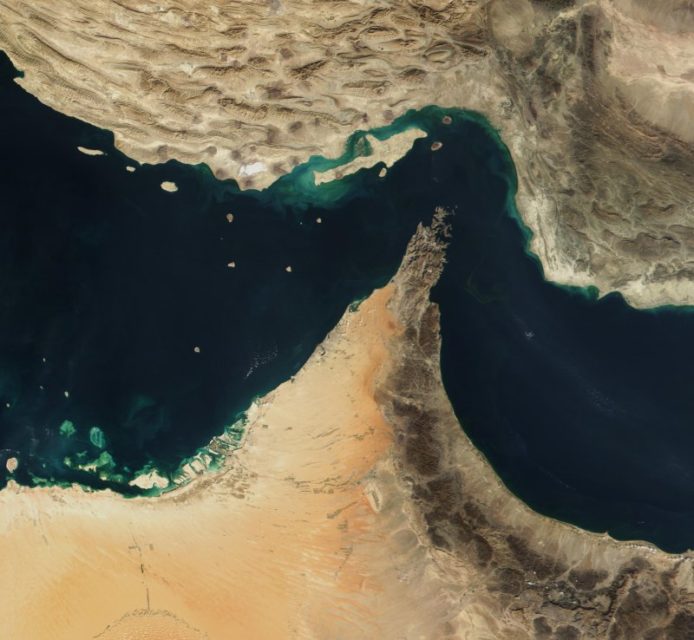Arthur Chrenkoff wonders what would happen if Iran gave a war, but nobody came:

A satellite view of the Strait of Hormuz, 30 December 2001.
Jacques Descloitres, MODIS Land Rapid Response Team, NASA/GSFC via Wikimedia Commons.
Nearly twenty per cent of world crude oil shipments (from the Arab Gulf producers) go out to the rest of the world through the Strait of Hormuz, which Iran is threatening to close (hence its recent attacks on oil tankers).
However, through a combination of fracking, increased mainline well production and greater efficiencies, the United States is now finally energy self-sufficient. For all that America cares, Iran could cut off all the traffic through the Strait and it would have a minimal impact on the domestic economy, some minor logistical adjustments aside.
Nearly two thirds of the oil that travels through the Strait ships to Asia instead, and specifically to China, India, Japan and Korea, which are significantly more dependent on that oil to power their energy-hungry, export-oriented economies than other regions of the world.
China, notably, has been Iran’s tacit international ally. If Iran wants to interfere with the free navigation in its backyard and in so doing antagonise one of its few remaining backers, it should be left alone to do so.
These circumstances – the US doesn’t need the Gulf oil, China does – should convince the United States to stand back and not involve itself yet another time as the world sheriff to enforce the rules of international law and maintain the open international trading system. The rest of the world all too often free-rides on America’s good graces (not to mention its blood and treasure), while at the same time reserving the right to castigate the superpower for its interventionism. Why not let the world experience what it’s like without having the US solve all their problems (while getting all their blame)? Maybe the European Union or the United Nations can do something [canned laughter]. Or maybe the most affected Asian nations can try to solve their own oil supply problems. Good luck, lads.



